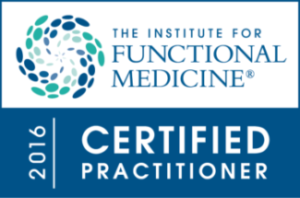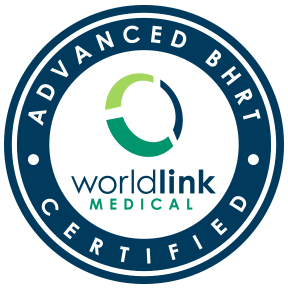Benefits of Partnering with a Registered Dietician Nurse Practitioner
Poor nutritional choices are the leading cause of early death and disease nationally and globally. In fact, poor dietary choices increase the odds of developing severe medical conditions by over 300 percent. This staggering statistic highlights why partnering with a registered dietician nurse practitioner is the most important decision you will ever make for your health and well-being.
What is a Registered Dietician Nurse Practitioner (RDNP)?
An RDNP is a healthcare professional with nursing and nutrition expertise. Here are some benefits of having an RDNP on your healthcare team:
- Comprehensive Care: A registered dietician nurse practitioner can provide comprehensive care by integrating nutrition and nursing expertise to address various health conditions such as diabetes, hypertension, cardiovascular disease, and other chronic illnesses.
- Personalized Nutrition Plans: RDNPs can provide customized nutrition plans based on a patient’s health needs, dietary preferences, and lifestyle. This personalized approach can help patients achieve their health goals and improve their overall quality of life.
- Disease Prevention: RDNPs can help prevent chronic diseases by promoting healthy eating habits and providing nutrition education. They can also work with patients to identify risk factors and develop mitigation strategies.
- Improved Patient Outcomes: Studies have shown that including a registered dietary nurse practitioner on a patient’s healthcare team can improve patient outcomes. RDNPs can help patients manage their chronic conditions, reduce hospitalizations, and improve their health and well-being.
- Collaborative Care: RDNPs can collaborate with other healthcare professionals, such as physicians, nurses, and pharmacists, to provide coordinated care to patients.
- Cost-Effective Care: Incorporating an RDNP into a patient’s healthcare team can be cost-effective in the long run. RDNPs can help prevent or manage chronic diseases, reducing healthcare costs associated with hospitalizations, emergency room visits, and medications.
A registered dietician nurse practitioner can provide patients with a unique combination of nutrition and nursing expertise, leading to improved health outcomes, personalized care, and cost-effective healthcare.
What’s in a Name? Breaking Down “Functional Medicine Registered Dietician Nurse Practitioner”
While registered dietician nurse practitioners already bring a comprehensive approach to healthcare, they become even more effective when combining their qualifications with functional medicine.
Let’s look at the qualifications of each title and the unique benefits it brings when addressing your healthcare needs.
Registered Dietician (RD)
A registered dietician (RD) is a healthcare professional who specializes in food and nutrition. RDs have a minimum of a bachelor’s degree in nutrition or a related field and have completed a supervised practice program. They also pass a national registration exam and maintain their registration by meeting continuing education requirements.
RDs work in various settings, including hospitals, clinics, schools, and community organizations. They provide individualized nutrition counseling and education to people of all ages and backgrounds. They also develop nutrition programs and policies, conduct research, and work with other healthcare professionals to ensure that patients receive comprehensive care.
RDs can provide expertise in a wide range of areas, including weight management, diabetes, heart disease, and food allergies. They use evidence-based approaches to help people achieve their health goals and improve their well-being.
Registered dieticians use their knowledge to inform and guide healthy nutritional choices. This approach includes the following:
- Nutrition Expertise: RDs have extensive nutritional knowledge and can help individuals develop personalized meal plans to manage medical conditions, improve athletic performance, or maintain overall health.
- Disease Management: RDs can work with individuals with specific medical conditions, such as diabetes or heart disease, to create a diet plan that helps manage their condition.
- Counseling: RDs can provide counseling to individuals to help them make healthy food choices and change their eating habits.
- Prevention: RDs can also work with individuals to prevent chronic diseases by developing healthy eating habits and lifestyle changes.
A registered dietician nurse practitioner combines the benefits of nutritional expertise with diagnostics to uncover dietary deficiencies that affect every aspect of your health.
Nurse Practitioner (NP)
A Nurse Practitioner (NP) is an advanced practice registered nurse (APRN) who has completed additional education and training beyond that of a registered nurse (RN). NPs are authorized to diagnose and treat illnesses, prescribe medications, and order and interpret diagnostic tests, among other responsibilities.
Nurse practitioners often collaborate with physicians, providing primary and specialty care in various healthcare settings, including hospitals, clinics, and private practices. They may specialize in family medicine, pediatrics, geriatrics, women’s health, and mental health.
NPs are recognized as primary care providers in all fifty states in the United States and are licensed and regulated by state boards of nursing. They must also maintain their certification through ongoing continuing education and professional development.
A nurse practitioner is a valuable asset in diagnostics and treatments for a wide variety of medical conditions. They are skilled in the following:
- Health Assessment: NPs perform comprehensive health assessments, including taking medical histories, performing physical exams, and ordering diagnostic tests.
- Disease Management: NPs can diagnose and manage acute and chronic medical conditions and prescribe medications when necessary.
- Counseling: NPs can provide counseling to individuals on a variety of health topics, such as nutrition, exercise, and stress management.
- Patient Education: NPs can also educate individuals on preventing and managing chronic diseases.
Functional Medicine Provider
Functional medicine is an approach to healthcare that focuses on identifying and addressing the root causes of chronic diseases and health problems. A functional medicine provider (FMP) is a healthcare practitioner who uses this approach to help patients achieve optimal health and wellness.
Functional medicine providers take a holistic approach to patient care, looking at the whole person rather than just their symptoms. When developing personalized treatment plans, they consider a patient’s unique genetics, environment, lifestyle, and health history. This may involve a combination of traditional medical treatments and complementary therapies such as nutrition, exercise, stress management, and supplements.
FMPs may be medical doctors, naturopathic doctors, registered dietary nurse practitioners, chiropractors, osteopaths, nurse practitioners, or physician assistants who have received specialized training in functional medicine. They may work independently or as part of a healthcare team, collaborating with other healthcare providers to provide comprehensive patient care.
Functional medicine aims to optimize a patient’s health and prevent chronic diseases by addressing the underlying factors contributing to their health problems. They do this by focusing on current health issues and preventing future concerns. Functional medicine providers have many advantages to conventional healthcare practitioners, including the following:
- Root Cause Analysis: Functional medicine providers aim to identify the underlying causes of a patient’s health issues rather than just treating the symptoms.
- Personalized Treatment: Functional medicine providers create customized treatment plans that may include dietary changes, supplements, and lifestyle modifications to address the root causes of a patient’s health issues.
- Collaboration: Functional medicine providers often work with a team of healthcare professionals to provide comprehensive patient care.
- Prevention: Functional medicine providers emphasize the importance of prevention and help individuals make lifestyle changes to optimize their health and prevent chronic diseases.
Registered dietician nurse practitioners are even more effective when they combine their expertise with a root-cause approach to health.
Choosing the Right Registered Dietician Nurse Practitioner
When choosing a registered dietician nurse practitioner, finding one specializing in root-cause medicine and implementing nutritional guidance with a functional medicine approach is essential.
Dr. Cheryl Winter and her team at Vital Health Solutions in Conroe, Texas, understand that while good nutrition is crucial for optimal health, there are many layers to any medical condition. Contact us now to see how we can help you be your best again, no matter the current state of your health or how long you’ve felt unwell. You can feel better naturally, and we can show you how.








